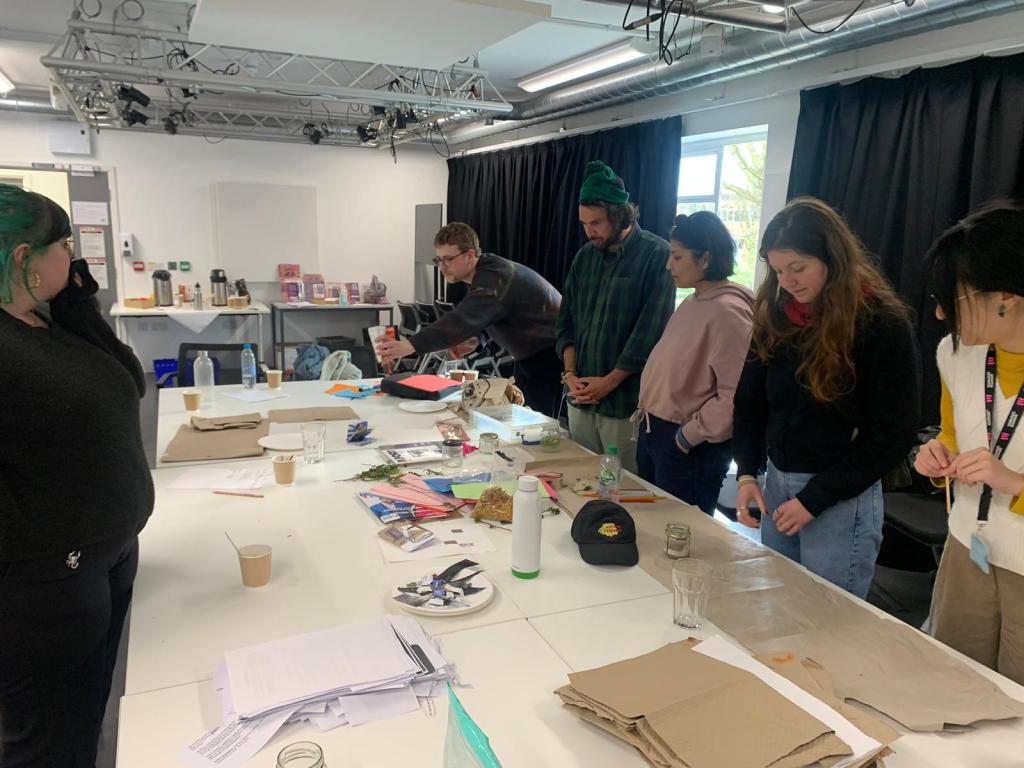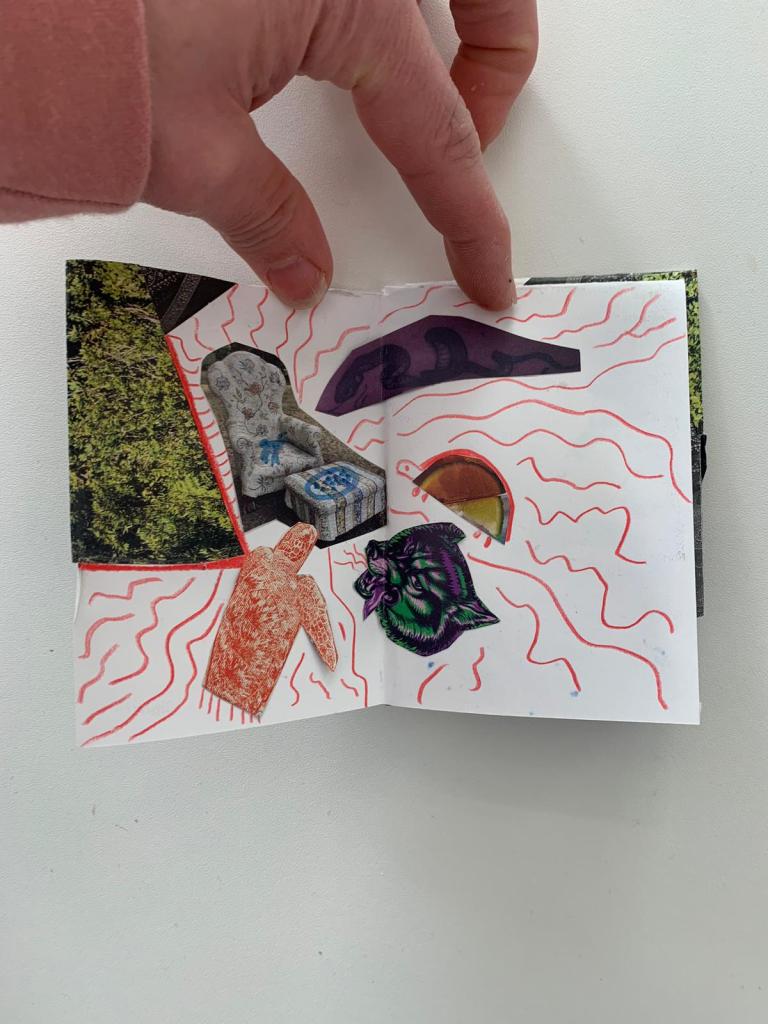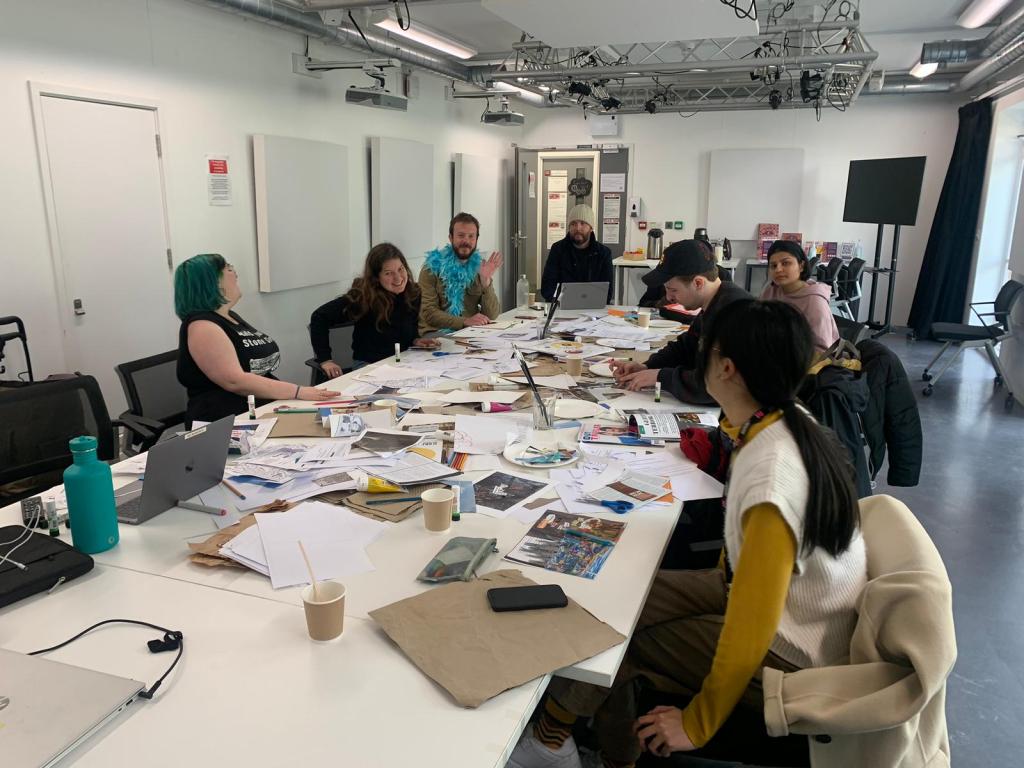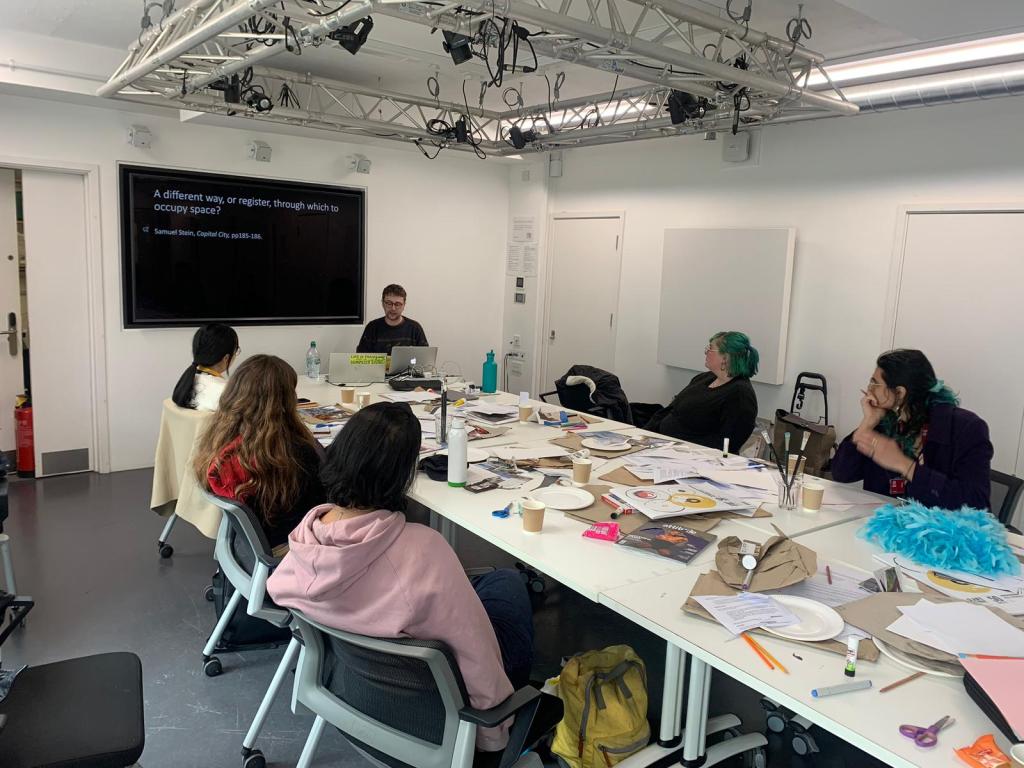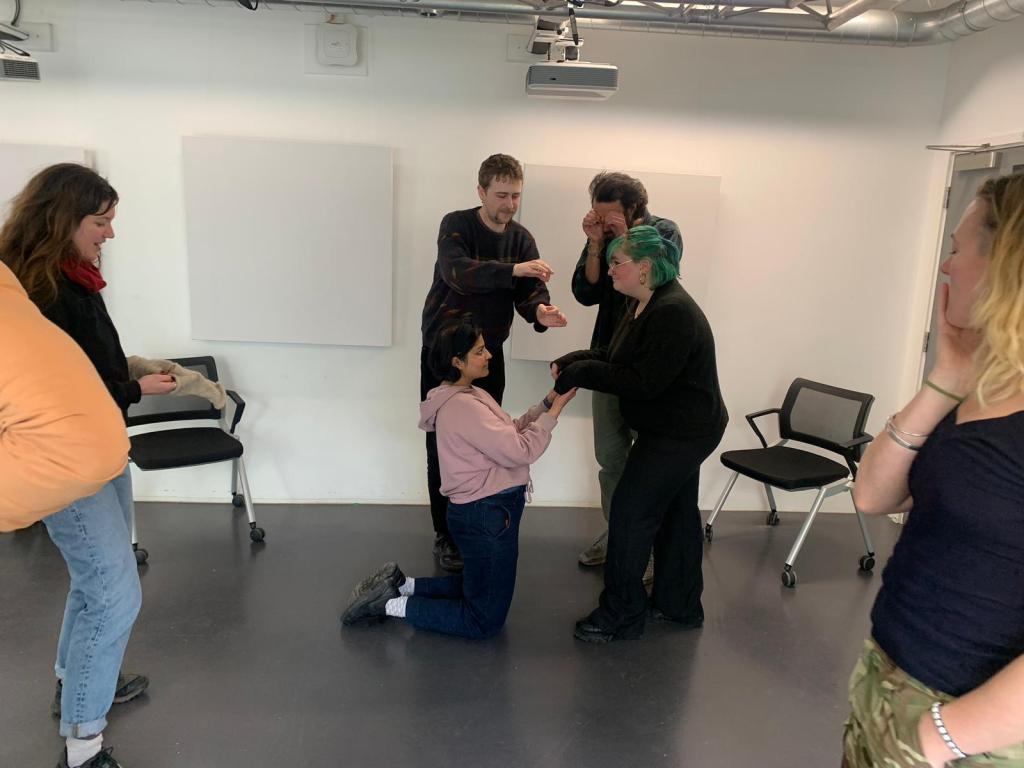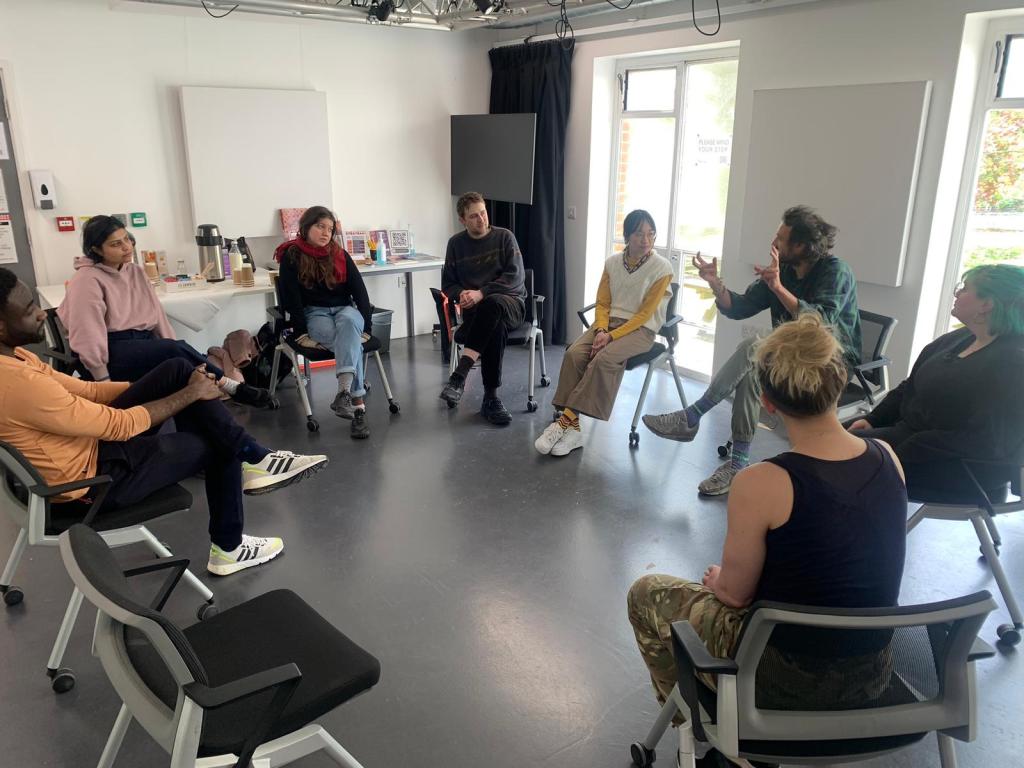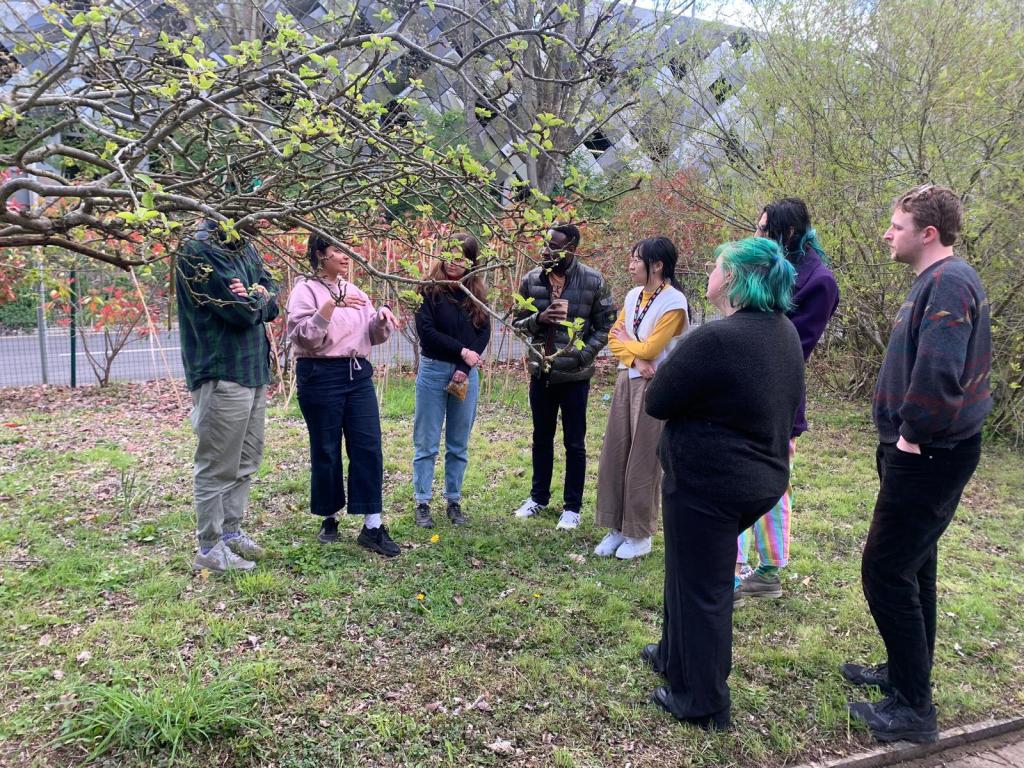By Sharon Webb
The Sussex Humanities Lab was delighted to welcome speakers and delegates online and in-person to the AI and Archives Symposium last month (April 2023). The event, a collaboration between the Sussex Humanities Lab and two AHRC-IRC funded research projects, Full Stack Feminism in Digital Humanities and Women in Focus, was an opportunity to share interest in, knowledge of, and concerns with AI systems in archives and archival praxis.
I began by introducing the Lab itself, partly to provide context to the space in which the AI and Archives Symposium was being held, but also because it provided a useful foundation for thinking about the presenters’ many research areas. The AI and Archives Symposium spoke to SHL’s creative, critical, and collaborative approach to research: our programme has a wide disciplinary reach, from community archives to AI, media theory to conservation technology, critical heritage to intersectional feminism, digital humanities to experimental music technology and critical making. A perfect setting for this collision of past, present and futures: AI and Archives! What follows is an edited version of my introduction.
“AI and Archives” covers a lot of ground, and requires conversation that is critically engaged, creative and exploratory, and informed by feminist, queer and anti-racist ethics and approaches. The conversations around AI and Archives are collaborative across and within disciplinary boundaries – much like how SHL brings those elements uniquely together under one programme.
The foundations of the symposium lie not in the current hype around AI but within dialogue to address or redress the historic and chronic under- and mis-representation of specific histories related to women, people of colour, LGBTQI+ communities, as well as the histories of individuals and communities who exist across multiple lines of identity politics and their intersections. Work in both projects, Women in Focus and Full Stack Feminism, considers how “archives”, as a place of knowledge, knowledge exchange, of power, disempowerment and empowerment, play a pivotal role in terms of acknowledging and celebrating the existence of alternative histories to those which form the traditional historic canon (mostly covering the domain of cis-white men, the victors and their conquests, trade and empire). Both projects, and indeed other projects related to SHL’s research cluster, Critical Digital Humanities and Archives, view archives as a place where identity lives, and where we can exemplify the contributions of those who have often been ignored, sidelined, and/or silenced, explicitly or otherwise.
A critical aspect of the Women in Focus project is revisiting records in East Anglian Film Archives (EAFA) and Irish Film Archives (IFA), editing metadata and thereby revealing and acknowledging the role of women amateur filmmakers. These records range from short “home movies” to longer travelogues, and include a rich mix of topics. Revisiting and editing these records is labour-intensive. While the collection is relatively small (in comparison to other archival collections elsewhere), the task of reviewing each record and its associated object remains complex and time-consuming. The original metadata also speaks to this resource scarcity, as some descriptions are limited in scope and missing crucial detail about contributors to the resource.
With this in mind, we thought about how computer vision might help generate descriptive metadata for moving-image archives. Of course, within digital humanities and computer science, there are many ongoing experiments exploring how AI might assist in identifying, describing, and/or tagging digital objects – the work of Lisa Jaillan, our first speaker, attests to this – but the current hype also demands some immediate responses. As AI tools multiply and grow mainstream, and potentials turn into realities, such work becomes timely, not least because of the problems of bias and discrimination which such systems can replicate and perpetuate.
AI, machine learning, computer vision, and other automated methods have an allure for several reasons. For example, while the digitisation of historical records has developed considerably, archival methods of cataloguing (metadata descriptions) remain largely the same (manual, human). Automated methods can provide resource and quick fixes for an industry or service which faces dwindling resources despite ever-increasing content.
The challenge we face is using AI for good – while anticipating, acknowledging and/or expecting elements which are/could be profoundly bad. A few years ago, Dr Ben Roberts, co-director of the lab, ran an AHRC Network grant called ‘Automation Anxiety‘. It explored contemporary attitudes toward automation, and framed them within the longer history of ‘automation anxieties’ related to mechanical devices. A notable example is, of course, the Luddites. Often misrepresented as mere technophobes, the Luddites quite rightly argued for more critical reflection on the economic and social consequences of technological change within textile manufacturing. Luddite perspectives were revived by Langdon Winner in the automation anxiety wave of the 1970s, and are attracting attention once more today.
There are many contexts in which we could discuss the topic of AI and Archives. Using AI to generate descriptive metadata, whether to describe text, moving image, audio, etc., can itself help with the problem of discoverability, which might in turn help to address the problem of biased training sets. AI being used to improve archives, archives being used to improve AI: perhaps we are amid a new archival turn!
However, the scale of implementing these systems is not trivial, and nor are the associated environmental costs, including the carbon impacts of training and running AIs, and of running the servers where archival data is stored. If AI removes the barrier of describing collections, does it also remove the barrier/process of appraising? We can/could possibly “save everything” but this preservation strategy would likely be at odds with climate change strategies – what additional pressure might digital archiving activities impose on our already delicate global ecosystem?
Like most people, I did ask ChatGPT to write something: ‘a 200 word abstract about AI and Archives’. Among its list of “benefits” it listed that “AI has the potential to automate many of the tedious tasks associated with archival work, such as cataloging and indexing”. And while this may of course be of benefit, we must question what the fallout of such an approach is. What does knowledge gain? What are the epistemological pitfalls of such an approach which removes the human? Is an archive a mere store for documents or do they serve a wider purpose? Conversations around AI and Archives, and digital material in general, do require us to think critically about the social and cultural role of archives, in our communities, in our societies.
And to whom is this task “tedious”? This depends on the context – for community archives who are archiving their histories, this work is not tedious, it is an essential activity in terms of knowledge production, community identity and historical acknowledgment. If knowledge is power, then what happens when our knowledge production processes are no longer mediated through us, but rather done for us? Machine talking to machine, rather than one human (the archivists) talking with a researcher.
Archiving in these contexts provides a close reading of the artifacts. The archival process itself is a meaningful exchange with history. This is not a “tedious task” but an important intergenerational passing of knowledge, of culture, of life experience. Wrapped in this context, we know ethics should be a driving force for any conversation or experiments with AI technologies. AI is maths after all – if we don’t calculate the parameters, who will!
A summary of the event and speakers will follow in the next few weeks, but perhaps the most enduring thought for me was that we do not experience these technologies equally. Nor do we experience heritage and archives in the same way – questioning representation and questioning our individual experiences and responses is imperative. How we “handle” heritage objects and their interpretation must be informed by collective, community driven activities and dialogue. Archives and heritage objects are not merely objects: they represent stories, experiences, life, death, hurt, violence, trauma, and joy. Critically, they represent human sentience, and whether AI will read these objects in this way is still yet to be seen.
